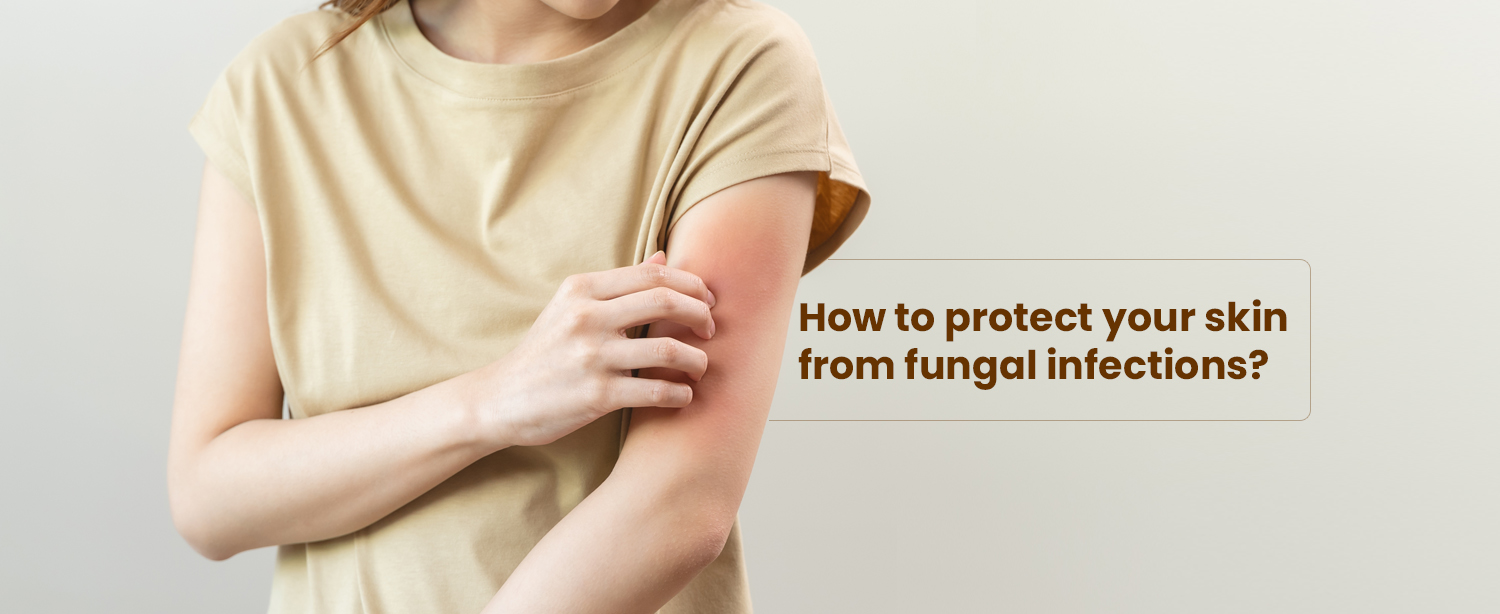Fungal skin infections are more common than you might think, affecting various parts of the body, including the skin, nails, and even the scalp. They are more likely to develop in people living in tropical climates like India. Despite their prevalence, many people still feel embarrassed about them, considering them an “unmentionable” problem. The reality is that fungal infections are a part of life, and with proper understanding, medical care and preventive measures, they can be managed effectively.
Table of Contents
What Are Fungal Infections?
Fungi are unicellular or multicellular organisms that are found virtually everywhere – in the air, soil, plants, water, and even on your skin. While many fungi are harmless, certain types can cause infections when they thrive in warm, moist environments on the body. Common areas where fungal infections occur include the scalp, ears, groin, thighs, buttocks, toes, and nails.
Types of Fungal Infections
- Ringworm (Tinea Corporis)
Despite its name, ringworm is not caused by a worm but by a fungus that lives on the skin, hair, and nails. It is easily recognizable by its circular, ring-like appearance on the skin. The infection can spread through direct contact with an infected person or animal, or by touching contaminated objects like towels, clothes, or brushes. - Athlete’s Foot (Tinea Pedis)
This is a common fungal infection that affects the feet, especially between the toes. It thrives in warm, moist environments such as inside shoes, locker rooms, and public showers. Symptoms include itching, burning, and cracked skin, which can become painful if left untreated. - Jock Itch (Tinea Cruris)
Jock itch affects the groin, buttocks, and inner thighs, causing a red, itchy rash that may have a circular shape. It is more common in men and can spread through direct contact or by sharing towels and clothing. - Candidiasis (Yeast Infection)
This is caused by an overgrowth of Candida, a type of yeast that normally lives on the skin and inside the body. Yeast infections commonly affect the mouth, throat, and genital area, leading to itching, burning, and unusual discharge.
How to Prevent Fungal Infections
Preventing fungal infections largely comes down to maintaining good hygiene and taking care of your skin. Here are some practical tips to help you avoid these infections:
- Keep Your Skin Clean and Dry
Fungi thrive in warm, moist environments, so it’s essential to keep your skin clean and dry. Bathe at least once a day, and always dry your skin thoroughly, especially in areas prone to moisture, such as the groin, underarms, and between the toes. - Wear Loose, Breathable Clothing
Tight clothing and shoes can trap moisture, creating an ideal environment for fungi to grow. Opt for loose-fitting clothes made of natural fibers like cotton, which allow your skin to breathe. Change out of sweaty clothes as soon as possible, especially after exercising. - Don’t Share Personal Items
Avoid sharing personal items such as towels, combs, and nail clippers, as these can harbor fungi and spread infections. If you must share items, ensure they are thoroughly cleaned and disinfected before and after use. - Maintain Good Nail Hygiene
Keep your nails short and clean, and avoid cutting the cuticles, as this can provide an entry point for fungi. Clean under your nails regularly and avoid sharing nail clippers. - Use Foot Protection in Public Areas
Public showers, locker rooms, and swimming pools are common places to pick up fungal infections like athlete’s foot. Always wear sandals or flip-flops in these areas to protect your feet. - Monitor Your Diet
A healthy diet can support your immune system and help prevent fungal infections. Incorporate probiotics, which are beneficial bacteria that can help fight off harmful fungi. Reducing sugar intake is also important, as high sugar levels can increase the risk of yeast infections. - Check Your Family Members
Fungal infections can spread easily within households. If you notice symptoms in a family member, encourage them to seek treatment and take precautions to avoid spreading the infection.
Skin care at Kokilaben Dhirubhai Ambani Hospital
By understanding the types, symptoms, and preventive measures, you can protect your skin from fungal infections and maintain good health. If you suspect a fungal infection, it’s important to seek medical advice promptly to prevent complications and reduce the risk of spreading the infection to others. Reach out to dermatologists at our Department of Dermatology at Kokilaben Hospital, Mumbai for prompt diagnosis and effective care. Please find attached our website details for further information: https://www.kokilabenhospital.com/departments/clinicaldepartments/dermatology.html


